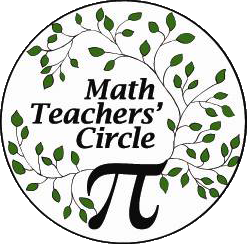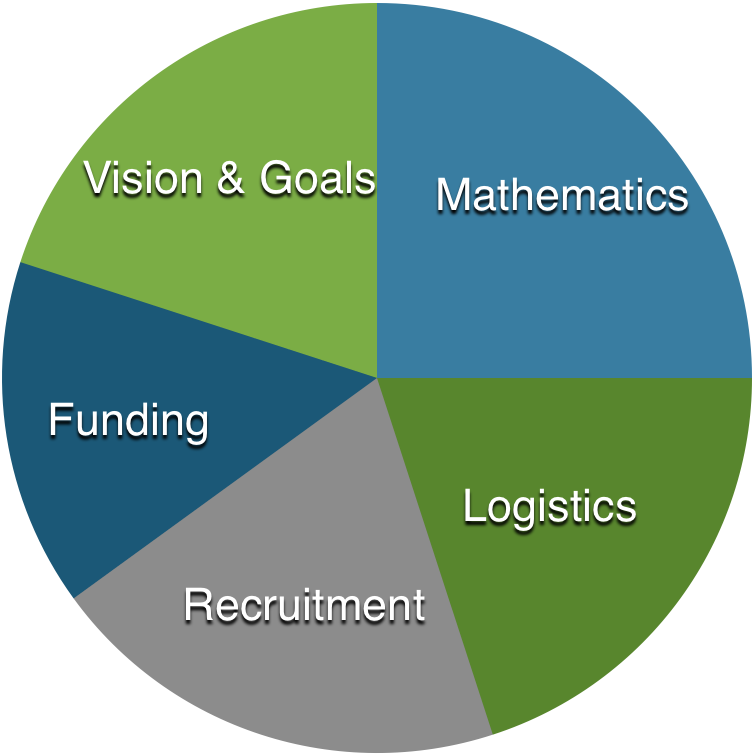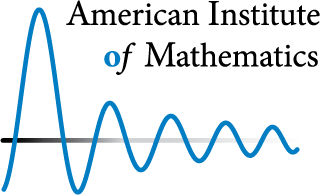Organizer Toolkit: Beginning Your Circle
So, you’re starting a Math Teachers’ Circle! We’ve assembled here a toolkit of resources designed to help new Math Teachers’ Circle leadership teams work through some common issues and challenges. The resources include materials developed during our 8 years of “How to Run a Math Teachers’ Circle” workshops, example documents from successful MTCs, articles from our newsletter, and other helpful resources we’ve encountered or developed.
The toolkit is designed for leadership teams who plan to begin a new Math Teachers’ Circle within 3 to 6 months. We strongly recommend working through each segment of the toolkit as a team.
If you have support from the MTC Network, your team will work through this toolkit in consultation with MTC Network staff, who will consult with you in a series of conference calls during your planning. Learn about applying for MTC Network support…
Early in the planning process, supported teams will also be connected with:
- A Circle Mentor, who will help you with your initial summer workshop, and
- A Sister Circle, which is a nearby Circle that your leadership team will visit.
Outline of Planning Activities
- Mathematics
- Vision & Goals
- Conference Call #1 with MTC Network Staff (for supported teams)
- Logistics
- Recruitment
- Conference Call #2 with MTC Network Staff (for supported teams)
- Budget & Fundraising
- Conference Call #3 with MTC Network Staff (for supported teams)
1. Mathematics
Thinking about the mathematics of your Math Teachers’ Circle will thread through all of your other planning activities. The resources below are meant to supplement and complement your visit to your Sister Circle and your work with your Circle Mentor, and to support your work in planning your own Math Teachers’ Circle’s mathematical sessions.
Introduction:
- The “Good Problem” Problem, by Joshua Zucker, from the Winter 2013 MTCircular.
This article gives a good overview of some of the characteristics of good MTC problems, as well as a list of some of the “classics.” - Math Teachers’ Circles: What Makes a Good One?, by Angie Hodge, from the MAA blog Math Ed Matters.
This blog post describes a brainstorming session at a “How to Run a Math Teachers’ Circle” workshop, in which participants listed characteristics of good MTC sessions and problems. - Be Less Helpful, by Joshua Zucker, from the Autumn 2012 MTCircular.
This article describes some of the key elements of leading a productive Math Teachers’ Circle session. We are told it is required reading for future math teachers at the University of Chicago. - So You’re Going to Lead a Math Circle, by Emily McCullough and Tom Davis.
This article is more geared for leading a student Math Circle, but includes advice and ideas that also apply to leading a Math Teachers’ Circle session.
Discussion: Videos
- Video Library: Pick 2-3 videos to watch and discuss with your team. For supported teams, we suggest watching one prior to each of the three conference calls with MTC Network staff.
Examples and Resources:
Planning a Session:
You will plan and lead at least one session in conjunction with your Circle Mentor, and will also get feedback from him or her about a session that your team plans and leads. Your team also might find it useful to work through the following activity that was used at the “How to Run a Math Teachers’ Circle” workshops.
- Session Planning Activity: The Brownie Problem
- Further Reading Inspired by the Brownie Problem
- Much More Than It’s Cooked Up to Be: Reflections on Doing Math and Teachers’ Professional Learning, by Joshua Taton, in Perspectives on Urban Education.
This article uses the Brownie Problem as a framework for describing some of the key features of Math Teachers’ Circles and what role they can play in teachers’ professional lives. - Brownie Points, by Chris Bolognese, in the North American GeoGebra Journal.
This article uses GeoGebra to explore the Brownie Problem.
- Much More Than It’s Cooked Up to Be: Reflections on Doing Math and Teachers’ Professional Learning, by Joshua Taton, in Perspectives on Urban Education.
Example Math Teachers’ Circle Session Materials
2. Vision & Goals
The vision and goals planning segment is intended to help you start to learn about each other’s expectations and potential contributions, and to start forming a vision together of what your MTC will look like. The objectives are to get to know your team, think about the context for your MTC, and develop a vision statement.
Introduction:
- What is a Math Teachers’ Circle?
- Math Teachers’ Circle Network vision
- Program results
- Vision & Goals Presentation
Discussion Guide:
Examples and Resources:
Vision Statements:
- Plain text
- From MTC websites:
- East Texas MTC, Nacogdoches, TX
- Casco Bay MTC, Falmouth/Portland, ME
- MTC of Austin, Austin, TX
- Nebraska MTC Network, Lincoln, NE
- New Haven County MTC, New Haven, CT
- SouthEast Ohio MTC, Athens, OH
- Thousand Oaks MTC, Thousand Oaks, CA
3. Conference Call #1
Agenda:
The purpose of this call is to discuss your team’s vision and goals, your progress with the videos, your Sister Circle and Circle Mentor assignments, and the next steps for your Circle.
Prior to the Call:
- Complete Vision & Goals planning segment
- Watch one video from the Video Library and discuss with your team
After the Call:
- Work with Circle Mentor to set workshop dates, and begin discussing workshop topics and schedule
- Sister Circle visit (depending on timing)
- Complete Logistics and Recruitment planning segments
- Watch and discuss another video from the Video Library
Contact us when you are ready to schedule Conference Call #1.
4. Logistics
The logistics planning segment is intended to help your team plan the nuts and bolts of how you will run your Math Teachers’ Circle. The objectives are to decide on a time, place, and schedule for your workshop and academic-year meetings; think about your MTC’s online presence; and develop a plan for how your Circle will be administered.
For additional resources for running your Circle’s activities, including meeting checklists, sign-in sheets, example participation certificates, and example evaluation forms, please visit our “Running Your Circle” toolkit [link coming soon].
Introduction:
- Logistics Presentation
An overview of the structure of MTCs, with examples from successful groups. Also includes an overview of your MTC’s online presence, and considerations for administering MTCs.
Discussion Guide:
Examples and Resources:
Workshops:
- Best practices:
- Best Foot Forward: Immersion Workshops Give New MTCs the Best Start Possible, by Hana Silverstein, from the Winter 2014 MTCircular.
Profiles of three workshops run by new MTCs.
- Best Foot Forward: Immersion Workshops Give New MTCs the Best Start Possible, by Hana Silverstein, from the Winter 2014 MTCircular.
- Example workshop schedules:
- Heartland MTC
- SouthEast Ohio MTC
- AIM MTC: 2014 and 2012 (with handouts)
Academic-Year Meetings:
- Best practices:
- Recipe for Success: Gathering the Perfect Ingredients for a Great MTC Session, by Joshua Zucker, from the Summer 2013 MTCircular.
Highlights some ideas for making your meetings as successful as possible. - Hitting New Heights in Hawai`i, by Brianna Donaldson, from the Summer/Autumn 2014 MTCircular.
Profile of the Math Teachers’ Circle of Hawai`i.
- Recipe for Success: Gathering the Perfect Ingredients for a Great MTC Session, by Joshua Zucker, from the Summer 2013 MTCircular.
- Example meeting schedules:
Online Presence:
- Websites:
- Department-hosted:
- Google sites:
- Weebly site:
- WordPress sites:
- All Member Circle sites
- Email lists:
- Facebook sites:
Administration:
- Job description for an administrative assistant
- Checklists:
These planning tools should give a sense of the administrative work involved in running a Math Teachers’ Circle.
5. Recruitment
The recruitment planning segment is intended to help your team think through how you will recruit teachers and professors to participate in your Math Teachers’ Circle. The objectives are to develop concrete plans, timelines, and assignments for recruiting teachers and professors/other mathematicians; and to plan for any promotional materials, recruitment events, or presentations.
Introduction:
Discussion Guide:
Examples and Resources:
Background Reading:
- Escape from Teacher Island: Building Colleague Relationships Through MTC Participation, by Jessa Barniol, from the Summer 2013 MTCircular.
This article focuses on personal and benefits to teachers of participating. - A Delicate Balance: Lessons from Teacher Networks That Work, by Clinton Morrison, from the Autumn 2012 MTCircular. Morrison investigated the Math Teachers’ Circle Network as part of a larger study of teacher networks for his master’s thesis, and identified key features of programs that are attractive to teachers and draw their continued participation.
- Something New: A Mathematician’s Perspective on Leading a Circle, by Estelle Basor, from the Winter 2012 MTCircular.
This article focuses on the mathematical rewards for a mathematician in leading a Math Teachers’ Circle session. - Hosting a Math Teachers’ Circle, from the Winter/Spring 2015 MTCircular.
Why should a math department (and its faculty) think about becoming involved in a Math Teachers’ Circle?
Best Practices:
- If You Build It, Will They Come? A Game Plan for Recruitment and Retention of Members, by Jessa Barniol, from the Winter 2013 MTCircular.
This article identifies some of the key practices of successful Circles for recruiting and retaining teacher members.
Recruitment Materials:
- AIM MTC: Flyer for workshop, flyer for academic-year meetings, brochure
- SouthEast Ohio MTC: Brochure, business card (based on Paul Zeitz’s Prime Number Card)
- Chippewa Valley MTC: Brochure
- MTC of Austin: Flyer for academic-year meetings
- Santa Cruz MTC: Flyer for academic-year meetings
6. Conference Call #2
Agenda:
The purpose of this call is to discuss your team’s plans for recruitment and logistics, and to check progress with the videos, your Circle Mentor, and your Sister Circle. We will also talk about the potential funders list we have generated for your Circle.
Prior to the Call:
- Work with Circle Mentor to set workshop dates, and begin discussing workshop topics and schedule
- Sister Circle visit (depending on timing)
- Complete Logistics and Recruitment planning segments
- Watch and discuss a second video from the Video Library
After the Call:
- Complete the Budget & Fundraising planning segment. This will include developing a first-year budget, reviewing your potential funders list, and drafting a long-term funding plan.
- Work with MTC Network staff to resolve any planning issues encountered so far
- Continue working with Circle Mentor on workshop planning
- Sister Circle visit (depending on timing)
- Watch and discuss a third video from the Video Library
Contact us when you are ready to schedule Conference Call #2.
7. Budget & Fundraising
The budget and fundraising planning segment is intended to help your team think about what resources you already have and what resources you need to run your program effectively. The objectives are to develop a budget for your first year and a plan for long-term funding.
Introduction:
- Funding Presentation
- Fundraising ideas Overview of potential sources of funding for your MTC.
Discussion Guide:
Examples and Resources:
Note that there are some example letters of inquiry and proposals on a password-protected site. Please contact us for access.
Best practices:
- Adding It All Up: Ten Ideas for Funding Your Circle, by Jessa Barniol, from the Winter 2012 MTCircular.
This article describes successful strategies that MTCs have used to obtain funding, and also provides some ideas about the creative use of non-financial resources.
Budget templates:
8. Conference Call #3
Agenda:
The primary purpose of this call is to discuss your team’s first-year budget, long-term funding plan, and potential funders list, and decide what your group’s next steps will be for seeking additional funding. We will also check in about any action items from previous calls, and check progress on your videos and workshop planning.
Prior to the Call:
- Complete the Budget & Fundraising planning segment. This will include developing a first-year budget, reviewing your potential funders list, and drafting a long-term funding plan.
- Work with MTC Network staff to resolve any planning issues encountered so far
- Continue working with Circle Mentor on workshop planning
- Sister Circle visit (depending on timing)
- Watch and discuss a third video from the Video Library
After the Call:
- Send proposal or letter of inquiry to the MTC Network team for review, if desired
- Follow up with additional planning issues and questions
Contact us when you are ready to schedule Conference Call #3.


